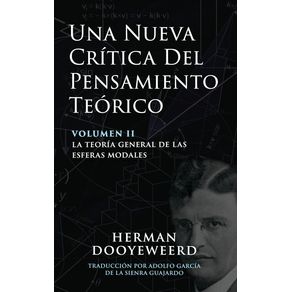De: R$ 0,00Por: R$ 115,64ou X de
De: R$ 0,00Por: R$ 115,64ou X de
| Selo | Sandycroft Publications |
|---|---|
| Edição | 0 |
| Idioma | Inglês |
| Autores | Gustave Le Bon |
| Acabamento | Capa Comum |
| Quantidade de Páginas | 162 |
| Origem | Literatura Estrangeira |
 Psicologia do esporte e desenvolvimento humano
Psicologia do esporte e desenvolvimento humano
Editora Viseu
R$ 71,90 à vista Névroses Et Idées Fixes ... . Par Le Dr. Pierre Janet ......
Névroses Et Idées Fixes ... . Par Le Dr. Pierre Janet ......
Legare Street Press
R$ 219,63 ou até 3x sem juros The Letters of Sigmund Freud and Otto Rank
The Letters of Sigmund Freud and Otto Rank
Hopkins Fulfillment Service
R$ 304,60 ou até 3x sem juros The Discipline of Masters
The Discipline of Masters
Scott Allan
R$ 115,90 ou até 2x sem juros Youth Suicide Prevention and Intervention
Youth Suicide Prevention and Intervention
Springer Nature B.V.
R$ 426,22 ou até 3x sem juros Archetypal Dimensions of the Psyche
Archetypal Dimensions of the Psyche
Random House
R$ 263,00 ou até 3x sem juros Dialectical Behavior Therapy
Dialectical Behavior Therapy
Draft2Digital
R$ 128,85 ou até 2x sem juros Polyvagal Theory
Polyvagal Theory
High Value Audiobooks
R$ 167,02 ou até 3x sem juros CATAFALQUE
CATAFALQUE
Peter Kingsley
R$ 424,80 ou até 3x sem juros A Deconstruction of Michel Foucaults 1979 Discourse of Neo-Liberalism for the 21st Century
A Deconstruction of Michel Foucaults 1979 Discourse of Neo-Liberalism for the 21st Century
Draft2Digital
R$ 132,97 ou até 2x sem juros Schedules of Reinforcement
Schedules of Reinforcement
Martino Fine Books
R$ 250,71 ou até 3x sem juros Identifying, Preventing and Combating Bullying in Gifted Education
Identifying, Preventing and Combating Bullying in Gifted Education
Information Age Publishing
R$ 471,37 ou até 3x sem juros My Favorite Failure
My Favorite Failure
Rowman & Littlefield Publishing Group Inc
R$ 228,09 ou até 3x sem juros Swami Vivekananda and C.G. Jung
Swami Vivekananda and C.G. Jung
Strategic Book Group, LLC
R$ 219,35 ou até 3x sem juros Ciencia y Conducta Humana
Ciencia y Conducta Humana
ABA Espana
R$ 279,98 ou até 3x sem juros Psicologia do esporte e desenvolvimento humano
Psicologia do esporte e desenvolvimento humano
Editora Viseu
R$ 71,90 à vista Academic Writing
Academic Writing
Prosperity Education
R$ 169,73 ou até 3x sem juros The Letters of Sigmund Freud and Otto Rank
The Letters of Sigmund Freud and Otto Rank
Hopkins Fulfillment Service
R$ 304,60 ou até 3x sem juros Una Nueva Crítica del Pensamiento Teórico
Una Nueva Crítica del Pensamiento Teórico
Paideia Press
R$ 390,97 ou até 3x sem juros Beginning to Read
Beginning to Read
Random House
R$ 267,74 ou até 3x sem juros How White Evangelicals Think
How White Evangelicals Think
Wipf and Stock Publishers
R$ 204,28 ou até 3x sem juros The 8 Habits of a Highly Effective Safety Culture
The 8 Habits of a Highly Effective Safety Culture
Gatekeeper Press
R$ 193,22 ou até 3x sem juros Dialectical Behavior Therapy
Dialectical Behavior Therapy
Draft2Digital
R$ 128,85 ou até 2x sem juros Polyvagal Theory
Polyvagal Theory
High Value Audiobooks
R$ 167,02 ou até 3x sem juros An Introduction to Personality, Individual Differences and Intelligence
An Introduction to Personality, Individual Differences and Intelligence
Sage Publications
R$ 402,04 ou até 3x sem juros Hegelian Marxism
Hegelian Marxism
Sodertorn University
R$ 161,67 ou até 3x sem juros The Unfortunate Truth About Vaccines
The Unfortunate Truth About Vaccines
Leon Canerot
R$ 152,93 ou até 3x sem juros SPORTS SOCIOLOGY IN PHYSICAL EDUCATION
SPORTS SOCIOLOGY IN PHYSICAL EDUCATION
Repro India Limited
R$ 103,31 ou até 2x sem juros Identifying, Preventing and Combating Bullying in Gifted Education
Identifying, Preventing and Combating Bullying in Gifted Education
Information Age Publishing
R$ 471,37 ou até 3x sem juros Swami Vivekananda and C.G. Jung
Swami Vivekananda and C.G. Jung
Strategic Book Group, LLC
R$ 219,35 ou até 3x sem juros Psicologia do esporte e desenvolvimento humano
Psicologia do esporte e desenvolvimento humano
Editora Viseu
R$ 71,90 à vista Freud and Said
Freud and Said
Springer Nature B.V.
R$ 343,96 ou até 3x sem juros Academic Writing
Academic Writing
Prosperity Education
R$ 169,73 ou até 3x sem juros Anxiety
Anxiety
Hopkins Fulfillment Service
R$ 260,14 ou até 3x sem juros Strategies and Tactics of Behavioral Research and Practice
Strategies and Tactics of Behavioral Research and Practice
Taylor & Francis Ltd
R$ 855,87 ou até 3x sem juros Managing your Mental Health during your PhD
Managing your Mental Health during your PhD
Springer Nature B.V.
R$ 177,76 ou até 3x sem juros Beginning to Read
Beginning to Read
Random House
R$ 267,74 ou até 3x sem juros The 8 Habits of a Highly Effective Safety Culture
The 8 Habits of a Highly Effective Safety Culture
Gatekeeper Press
R$ 193,22 ou até 3x sem juros Dialectical Behavior Therapy
Dialectical Behavior Therapy
Draft2Digital
R$ 128,85 ou até 2x sem juros The Master of Achievement
The Master of Achievement
Scott Allan
R$ 104,92 ou até 2x sem juros A Deconstruction of Michel Foucaults 1979 Discourse of Neo-Liberalism for the 21st Century
A Deconstruction of Michel Foucaults 1979 Discourse of Neo-Liberalism for the 21st Century
Draft2Digital
R$ 132,97 ou até 2x sem juros Schedules of Reinforcement
Schedules of Reinforcement
Martino Fine Books
R$ 250,71 ou até 3x sem juros Identifying, Preventing and Combating Bullying in Gifted Education
Identifying, Preventing and Combating Bullying in Gifted Education
Information Age Publishing
R$ 471,37 ou até 3x sem juros My Favorite Failure
My Favorite Failure
Rowman & Littlefield Publishing Group Inc
R$ 228,09 ou até 3x sem juros Interpersonal Psychotherapy 2E A Clinicians Guide
Interpersonal Psychotherapy 2E A Clinicians Guide
Taylor & Francis Ltd
R$ 554,61 ou até 3x sem juros